5. The Shield (2002 – 2008)
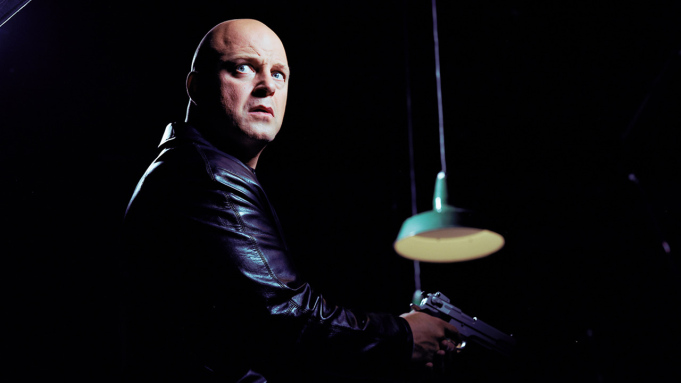
The Shield’s premise, focusing on a crooked team of police in LA, is not the most original. In fact it was based on a real corrupt police squad from the 1990s, some of whom were involved in the murder of the Notorious B.I.G. At the center of it is Vic Mackey, the burly, erratic head of the group, played excellently by Michael Chiklis. It is filled with high intensity action and sweeping story arcs, similar to The Wire, but the show’s best asset is the way it explores the dilemma between following the rules and getting results. While Vic is unquestionably a heinous individual, there arise many instances in which his methods are the only way to catch the criminal.
Why it would make a good movie: I know, there are no shortage of movies about crooked cops; there are even some based on the same events that influenced The Shield. But in most of these movies the examination of the themes are entirely one-sided, only showing the corrupted as monsters. This may be the safe way out, especially in this political climate, but it’s far less interesting, and fails to look at the frustration and motivations that lead to this violation of ethics. The Shield overstayed its welcome a bit, dragging on through the middle seasons. I think it could be quite effective in a feature length format, something like Training Day meets End of Watch.
Dream Directors: Katherine Bigelow has explored similar themes before, can direct both action and drama, and is capable of pulling complex performances out of her leads. This also seems like it would be in Ben Affleck’s wheelhouse.
4. Mr. Robot (2015 – 2019)
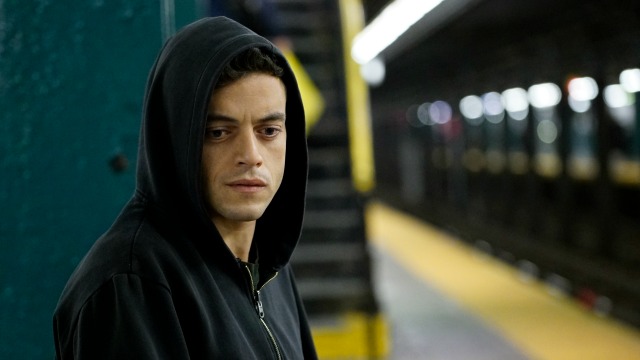
Rami Malek stars in his breakthrough role as Elliot Anderson, a gifted computer engineer who suffers from an array of personal problems including drug use, anxiety and delusion. He is recruited by anarchist group known as fsociety to hack into and bring down the world’s biggest and greediest companies. As is that wasn’t enough, his ambitions are constantly hobbled by his crippling mental breakdowns. The show also interestingly portrays the villainous corporate snakes as fully fleshed humans with their own motivations.
Why it would make a good movie: First of all, the premise is very relevant today, and surprisingly hacking has not been a popular theme in film since the early 2000s so it would feel fresh. There is plenty of room to explore economic and social issues, as the show does, as well as technology as a weapon in an era where this topic is all over the news. The instability of Elliot would also be better suited to a film format, where in the show it can sometimes muddle the story into a convoluted series of twists.
Dream Directors: It seems like David Fincher would be the clear pic, as the premise is essentially Fight Club mixed with technology and espionage, two other themes in which he has successfully proven himself. Paul Verhoeven deserves another shot at Hollywood, and has shown that he can take himself a bit more seriously these days.
3. The Rifleman (1958 – 1963)
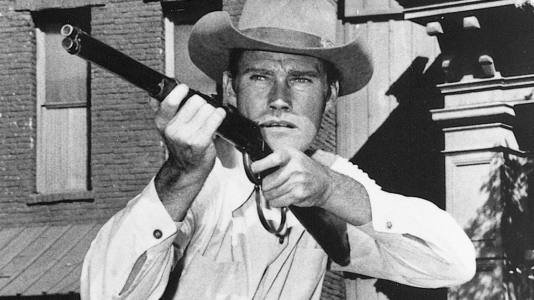
One of the most iconic shows of early television and still enjoying reruns today, The Rifleman is a rock solid western classic showcasing the harsh life of the frontier as well as deeper moral lessons. The story follows the complex character of Lucas McCain, a deadshot Civil War vet turned rancher, who, widowed, raises his son in the south during Reconstruction. The renown of his proficiency with a rifle and his moral compass often gets him dragged into turmoil. It can sometimes be a little hokey, but for its time is refreshingly blunt about the darker side of American heritage, especially how it influences his son Mark.
Why it would make a good movie: Traditional western films don’t get made much anymore. Sure, there are the occasional art house project, or Tarantino’s unique spins on the genre, but people seem averse to approaching the genre in the usual manner. This is a great base on which to explore the genre anew. The setting is simple yet intriguing. The main character is layered, and has inner demons and post-Civil War south is full of interesting wrinkles to explore.
The most promising aspect is the father-son relationship at the center of each story, teaching of responsibility and hard truths. It is worth noting that Sam Peckinpah was heavily involved at the shows beginning and was only booted when he took things a little too darkly; it should be no problem taking this source material and converting it to suit a darker leaning modern audience.
Dream Director: Clint Eastwood has the history in the genre, and the sentimentality to make a good adaptation of this show, but he seems more concerned with modern events these days to make a fictional movie. Steve McQueen also has the temperament for it, and he showed with Widows that he can make more than just arthouse cinema.
2. Samurai Jack (2001 – 2004, 2017)
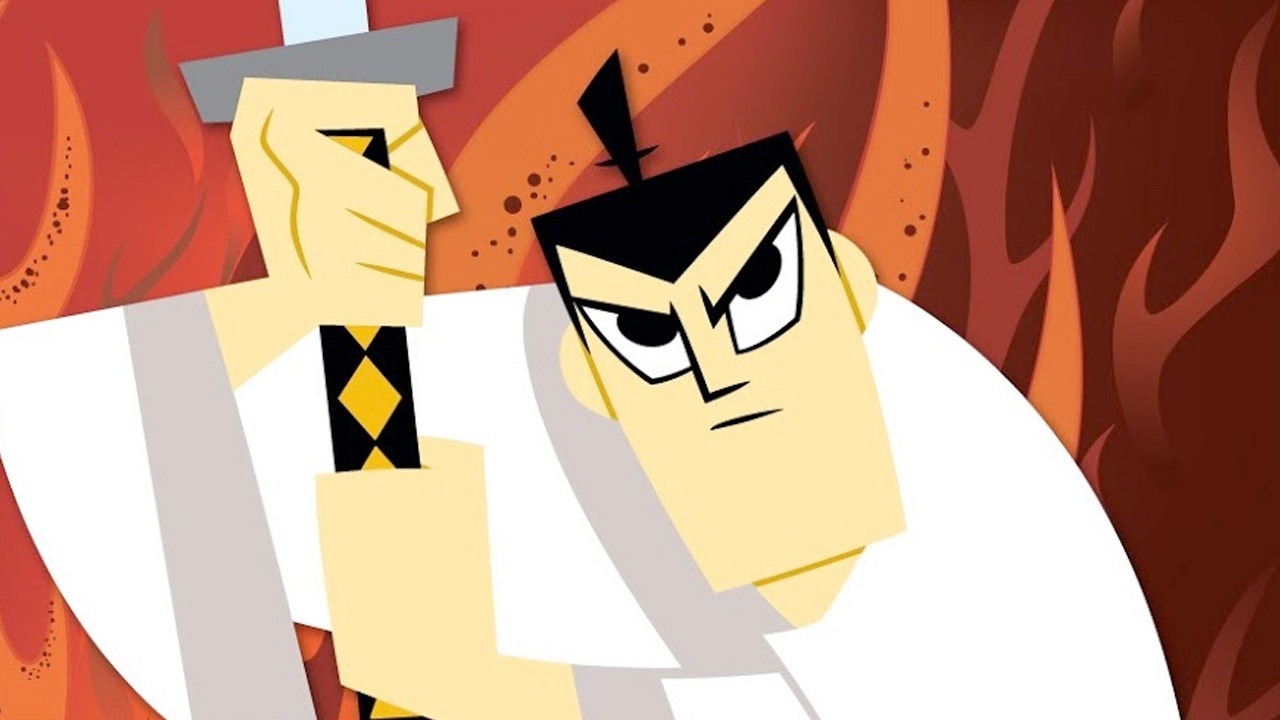
This masterpiece by Genndy Tartakovsky is one of the most inventive and visually stunning cartoons ever. Running for four years on Cartoon Network in the early 2000s and a final revival in 2017, it lasts mostly as a cult phenomenon, never gaining as popularity as its premise and craftsmanship deserve. The plot follows a samurai who, in combat with a powerful demon Aku, is sent through time into a technologically advanced future ruled by the demon. He must try and find his way back home and defeat Aku.
Why it would make a good movie: It lacks the open-ended nature of many of the other entries on this list, but makes up for it in compelling plot. The show itself is not very long, with long battles taking up many of the episodes so it seems doable to shorten to feature length without losing much.
Aside from the action potential, there is room to explore many themes including man vs. technology and honor. It also offers a chance to give a new approach to the well worn samurai genre. Ideally it would be more grounded, stylistically, than the cartoon, like Kurosawa set in the future. Frank Miller’s graphic novel Ronin shows what one vision of this might look like.
Dream Director: My first choice would be Denis Villeneuve; he will give the film the visual brilliance it deserves, can manage an epic-style film, and is not averse to telling someone else’s story. I’d also like to see what Ridley Scott would do with it.
1. The Prisoner (1967)
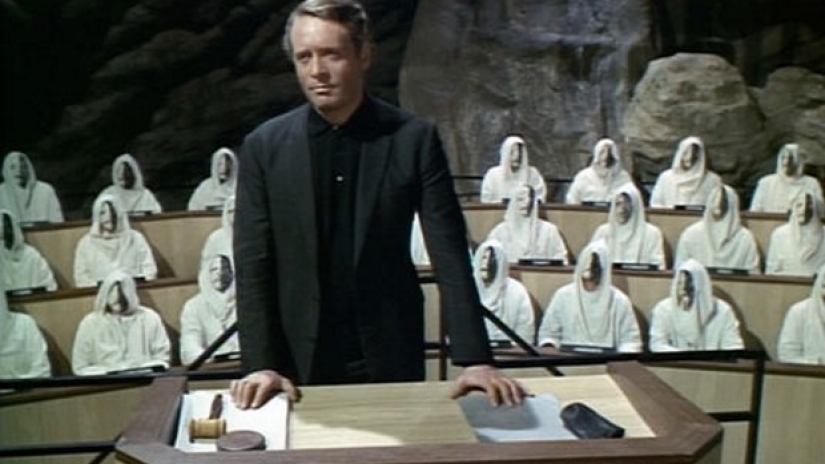
Okay, so today, with only one season, we would probably call this a mini-series but at 17 lengthy episodes, mostly with self contained story arcs, I consider The Prisoner a TV series. The premise is explained in the opening credits: a spy quits the agency, is captured, and wakes up on a mysterious island.
Whoever runs the island (the enemies of his agency? His agency themselves?) try to repeatedly trick him into revealing why he resigned, and he has to remain resilient. The island, (referred to as the village) is a strange blend of futuristic tech and quaint, rural England. The inhabitants abide by a strange set of rules, but are otherwise normal folk, and all are referred to strictly by an assigned number. Our hero, Number 6, must hold on to his secrets and try to escape the island at all costs.
Why it would make a good movie: It seems like there would be little freedom to explore the plot of such a short series, but really the premise is the only guideline. Each episode by itself is just another ruse to weed out the secret, and this is where a fresh writer can make it their own. The ending’s ambiguous nature also allows for the film’s conclusion to go in any direction the filmmaker wishes.
The true opportunity in the premise is not the development of the plot, but using the creative premise to showcase the strength of individualism and willpower. The environment of The Village, shifting day-by-day, allows Number 6 to be an archetype for all humans in their struggle to hang on to their own sense of personal identity.
Dream Director: Of course, Christopher Nolan could do a good job with it. I would only hope he’d use the same restraint he showed in Dunkirk and not try and fully explain an overblown plot like in Interstellar or Inception. The Coen Brothers could also do it justice by capturing the quirkiness of the show as well as its heavier themes. Maybe, just maybe, do we trust M. Night Shyamalan again?